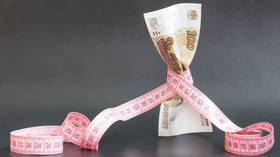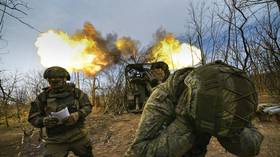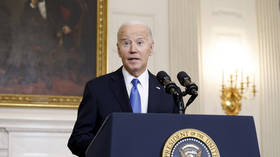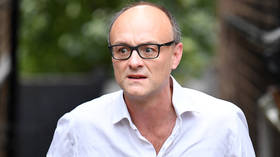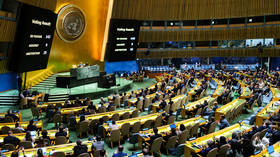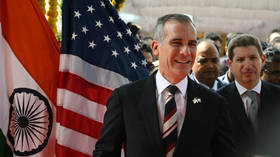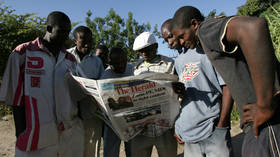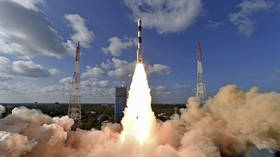Putin aide denies Moscow wants ‘weak’ ruble

The value of the Russian ruble has significantly deviated from fundamental levels, according to Russian President Vladimir Putin’s economic adviser, Maksim Oreshkin, who expects the exchange rate to stabilize in the near future.
The official stressed that a weak national currency complicates the economy’s structural transformation and has a substantial negative impact on real household earnings.
“It is in the interests of the Russian economy to have a strong ruble,” Oreshkin wrote in an op-ed for TASS news agency.
Earlier on Monday, the ruble touched its lowest level against the dollar since March 2022, reaching 101 versus the US currency, and 111 against the euro, a 16-month low.
The presidential adviser pointed to rising inflation and central bank monetary policy as the main drivers of the falling ruble.
“The central bank has all the tools to normalize the situation in the near future and ensure that lending rates are reduced to sustainable levels,” he said.
Lending and credit to both households and the corporate sector has become crucial for boosting economic demand, Oreshkin said, adding that corporate and consumer loans have ensured the formation of 12.8 trillion rubles ($128 billion) of additional demand in the economy.
“These figures significantly exceed the amount of the budget deficit that has amounted to only 1.5 trillion rubles ($15 billion) since the beginning of the year,” he said.
“On the whole, since the beginning of the year, the public sector has absorbed funds from the economy and had a negative impact on money supply amounting to some 0.9 trillion rubles ($9 billion) as of August 1 of this year.”
For more stories on economy & finance visit RT's business section
